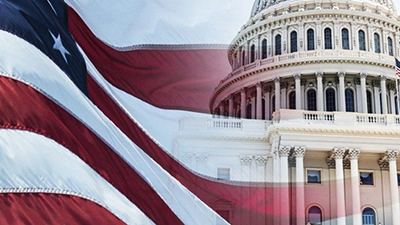By Larnez Kinsey
(Source: Black Westchester)
 The IRS just made it official:
The IRS just made it official:
Churches and houses of worship can now endorse political candidates to their congregations without losing their tax-exempt status.
Let’s be real. This isn’t just a policy change.
It’s a quiet power grab, dressed in scripture and subtle language.
They’re calling it a “family discussion,” but we know what it is:
a legalized pipeline from the pulpit to the polls.
Because when the government says religious endorsements aren’t “campaigning,” what they’re really saying is:
“Preachers, go ahead and push candidates during your sermon. We won’t tax you for it.”
That means a pastor can name-drop their favorite Senate hopeful right after the benediction and still pass the collection plate tax-free.
But this isn’t about freedom of speech.
It’s about strategic manipulation, disguised as divine authority.
Let’s Be Clear About the Setup
This ruling came out of a lawsuit filed by two churches in Texas and a Christian broadcasting group.
Their goal?
To open the floodgates for political endorsements in sacred spaces, without triggering the Johnson Amendment, a decades-old law that barred nonprofits from politicking.
And the IRS gave them exactly what they wanted.
Now, churches have been given a greenlight to do what other nonprofits still legally can’t: endorse candidates with no consequences.
No oversight.
No donor disclosures.
No accountability.
And all while collecting tax-deductible donations.
That’s not just a loophole.
That’s a playbook.
Why This Hits Different in Our Communities
Let’s not act brand new.
The Black church isn’t just a place of worship; it’s a cultural cornerstone.
It’s where we organize, educate, heal, and mobilize.
So when the IRS tells churches, “it’s okay to endorse,” what they’re really doing is weaponizing trust.
Because who do people still believe when the world is burning?
Their pastor.
Their imam.
Their spiritual anchor.
But now, that trusted voice could be echoing the interests of a political campaign, one that may not even serve the people in the pews.
And the scariest part?
It’s all legal now.
The Real-World Impact
Let’s run some numbers:
1 in 4 Black girls will be sexually assaulted before 18.
Black maternal mortality is 3x higher than white women.
Over 60% of Black youth attend underfunded schools.
Gun violence is the #1 killer of Black children in America.
So the question becomes:
Who benefits when churches endorse candidates who vote against our survival?
We’ve already seen how political agendas creep into sermons:
Telling congregants not to support reproductive justice.
Telling them “tough on crime” is gospel.
Telling them to trust systems that have failed us for centuries.
This ruling gives those agendas room to grow and now, nobody’s watching.
Spiritual Gentrification is Real
This is how it starts.
Take a sacred space. Introduce a subtle shift. Wrap it in tradition. Monetize the influence. And act like it’s always been that way.
They’re not trying to separate church and state.
They’re trying to merge them strategically, under the table, with a tax-free seal of approval.
And what happens when candidates start courting churches like they do influencers?
We risk our pulpits becoming platforms.
Our praise becoming propaganda.
Our faith being flipped into someone else’s funnel.
What Do We Do Now?
We stay woke in the pews.
We ask our leaders the hard questions:
Who are they aligning with?
Who benefits from that alignment?
And are our communities actually being served or simply being swayed?
Because this isn’t
just about politics.
It’s about protection.
Protection of our sacred spaces.
Protection of our right to uncoerced faith.
Protection of the people who walk through those doors looking for God, not a campaign.
Final Word: The Pulpit Isn’t For Sale
This IRS ruling might be legal but that don’t make it righteous.
Because the truth is:
Faith isn’t supposed to be a funnel for votes.
It’s supposed to be a force for freedom.
So while candidates are out here trying to cozy up to clergy, we better remember who the real power belongs to:
The people. The pews. The prophets, not the politicians.

